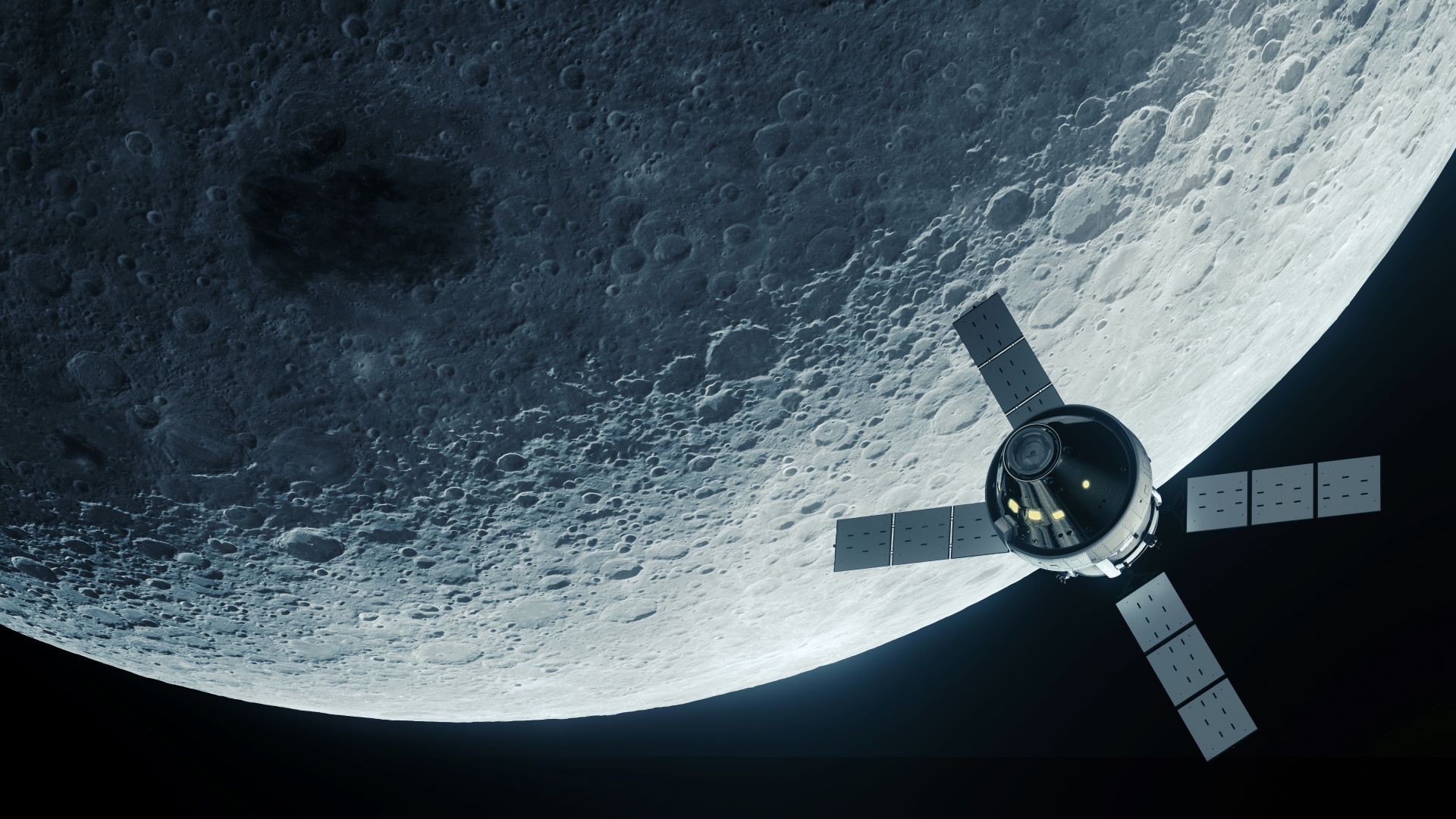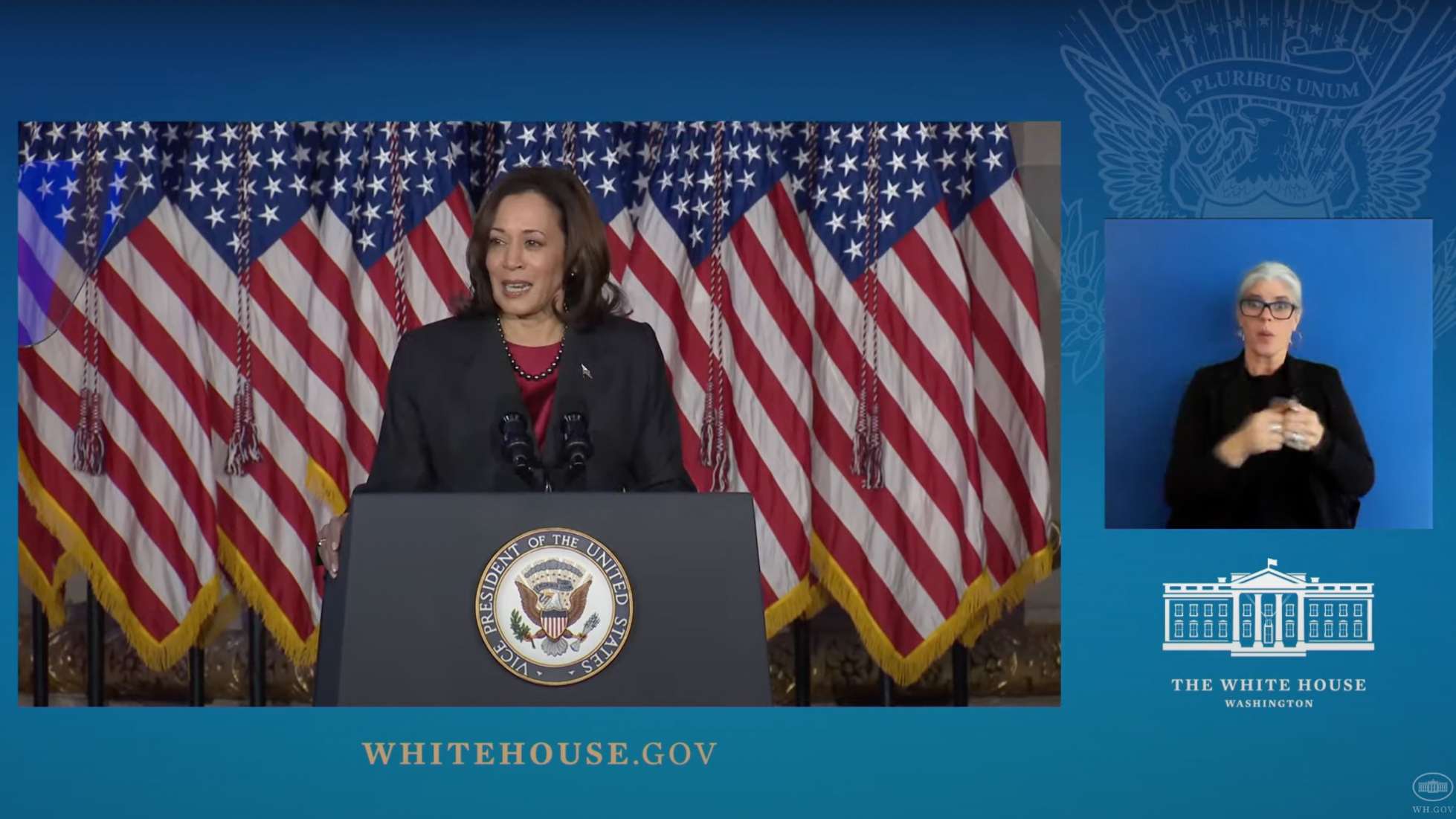Artemis program will land international astronaut on the moon by end of 2020s, VP Harris says

NASA's crewed return to the moon is an international affair, U.S. Vice President Kamala Harris reiterated today (Dec. 20).
During the third meeting of the National Space Council (NSC), which she chairs, Harris pledged that NASA's Artemis program will send a non-American to the lunar surface in the relatively near future.
"We intend to land an international astronaut on the surface of the moon by the end of the decade," Harris said. She didn't provide further details, such as which nation that astronaut will represent.
Related: Artemis 1 paves way for European tech and astronauts on the moon
The Artemis program aims to establish a permanent, sustainable human presence on the lunar surface by the end of the decade. The skills and knowledge gained via this effort will help our species make the leap to Mars in the 2030s or 2040s, NASA officials have said.
NASA is leveraging a variety of partnerships, both commercial and international, to achieve Artemis' bold goals. For example, the European Space Agency (ESA) provides the service module for Orion, the American-made capsule that will fly Artemis astronauts to lunar orbit. And ESA, the Japan Aerospace Exploration Agency (JAXA) and the Canadian Space Agency (CSA) are all contributing significantly to Gateway, the small space station that NASA plans to build in lunar orbit a few years from now.
One Artemis mission is in the books already: Artemis 1, which sent an uncrewed Orion to lunar orbit and back late last year. Artemis 2 is slated to send four astronauts — three NASA spaceflyers and the CSA's Jeremy Hansen — around the moon in late 2024 or 2025.
Breaking space news, the latest updates on rocket launches, skywatching events and more!
Then the surface missions are scheduled to begin. Artemis 3, which will put astronauts down near the lunar south pole, is targeted for 2025 or 2026. After that will come Artemis 4 and Artemis 5, which could launch as soon as 2028 and 2029, respectively.
Artemis 4 and Artemis 5 will both feature one European astronaut, ESA Director Josef Aschbacher told Space.com in July. So Harris' statement at today's NSC meeting, which was held at the Mellon Auditorium in Washington, D.C., doesn't really count as breaking news.
Still, her public pledge reaffirmed that Artemis is a different animal than Apollo, a flags-and-footprints effort in which the United States journeyed very much alone. Indeed, Harris stressed today that 33 nations have now signed on to the U.S.-led Artemis Accords, which lay out a framework for responsible lunar exploration.
"This announcement, and this meeting of our National Space Council, is further demonstration of our belief in the critical importance of international partnership," Harris said.
Artemis wasn't the only topic of discussion at today's meeting of the NSC, a policy-shaping body made up of several dozen high-ranking U.S. officials, including the NASA administrator, the Director of National Intelligence and the secretaries of defense, state, commerce, transportation and homeland security.
For example, several attendees stressed the national-security importance of the final frontier.
"In my view, space has emerged as our most essential warfighting domain, integral to our national security, our coalition interoperability and our global stability," said Adm. Chris Grady, vice chairman of the Joint Chiefs of Staff.
"And it is through our mastery of this domain — mastery together with all of our allies and partners — that we gain unparalleled clarity in visualizing the battlefield, a perspective that is vital for informed, rapid decision-making, for precision effects and, ultimately, for the awareness that we need to best defend our nations," Grady added.
Today's NSC meeting occurred on the fourth anniversary of the establishment of the U.S. Space Force, a detail highlighted by both Harris and Grady.
"The youngest service in our joint force is essential to protecting our most critical space systems, to collaborating with commercial industry and to prioritizing our interoperability with allies and partners," Grady said.

Michael Wall is a Senior Space Writer with Space.com and joined the team in 2010. He primarily covers exoplanets, spaceflight and military space, but has been known to dabble in the space art beat. His book about the search for alien life, "Out There," was published on Nov. 13, 2018. Before becoming a science writer, Michael worked as a herpetologist and wildlife biologist. He has a Ph.D. in evolutionary biology from the University of Sydney, Australia, a bachelor's degree from the University of Arizona, and a graduate certificate in science writing from the University of California, Santa Cruz. To find out what his latest project is, you can follow Michael on Twitter.

